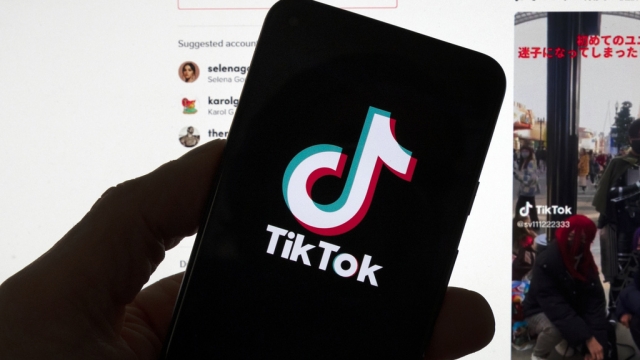House Republicans and Democrats banded together and overwhelmingly approved legislation that would cause TikTok to be banned in the U.S. if its parent company, ByteDance, does not divest from the social media platform.
The bill passed by a 352-65 margin.
If signed into law, ByteDance would have six months to sell.
Officials estimate TikTok has 170 million users in the U.S. The platform is extremely popular among teenagers. In 2023, it was the No. 2 social media network among U.S. teens (used by 63%), only behind YouTube, and ahead of Snapchat, Instagram and Facebook, according to Pew research. Pew says TikTok is the No. 5 social media network among adults in the U.S., ahead of older networks such as LinkedIn, X and Reddit. The number of adult users grew by 12% between 2021 and 2023, according to Pew.
SEE MORE: About 72% of American teens feel peaceful when away from cellphones
Lawmakers say they don't want to ban TikTok
TikTok has been a lawmaker target for years, but there's new momentum on Capitol Hill for forcing the Chinese-linked app to make changes or risk being banned from the U.S. entirely.
Rep. Mike Gallagher, R-Wisconsin, has been working alongside his Democratic colleague, Rep. Raja Krishnamoorthi, D-Illinois, to eliminate any connection between TikTok and China.
"TikTok can continue to exist in the United States as long as it's not effectively controlled by the Chinese Communist Party," Gallagher said.
Banning the social media app is not the goal. It's about separating TikTok from its parent company, Byte Dance, which has links to the Chinese government.
"That will make for a better user experience. People won't have to worry about manipulation of algorithms, they won't have to worry about a hostile foreign adversary potentially manipulating the news that Americans consume," said Gallagher.
China has national security laws that can compel businesses to turn over information or assist with intelligence gathering. Since 2022, TikTok has been prohibited on government-issued devices.
In March 2023, TikTok's CEO promised to put a firewall around U.S. user data, but that didn't do enough to ease concerns. Also, last year, the Committee on Foreign Investment in the U.S. threatened to ban TikTok if China didn't divest, but that threat hasn't become reality yet.
Lawmakers say the House's bill does not infringe on Americans' First Amendment freedom of speech.
"We don't want to censor any type of content. This is not about a content-specific law. This is about the manner in which the CCP controls Byte Dance, the parent of the platform at issue," said Krishnamoorthi.
After a push alert in the app, TikTok users flooded congressional offices with phone calls opposing the bill. But lawmakers say that is precisely why Americans should be concerned.
"TikTok actually put up a notice where they blocked an individual to actually get on TikTok unless you called your member of Congress and told them not to vote for this legislation. But that's just an example of how they can manipulate data and influence Americans for their agenda," said Rep. Cathy McMorris Rodgers, the Republican chair for the House Energy and Commerce Committee.
What happens next
The bill's future in the Senate is unclear, but if it reaches President Biden's desk, the president has said he will sign it. If the bill is signed into law, ByteDance would have six months to sell TikTok before a ban would go into effect.
After the bill's passage, Senate Select Committee on Intelligence Chair Sen. Mark Warner, D-Virginia, and Vice Chair Sen. Marco Rubio, R-Florida, issued a joint statement praising the House's vote.
“We are united in our concern about the national security threat posed by TikTok – a platform with enormous power to influence and divide Americans whose parent company ByteDance remains legally required to do the bidding of the Chinese Communist Party. We were encouraged by today’s strong bipartisan vote in the House of Representatives, and look forward to working together to get this bill passed through the Senate and signed into law," the senators said.
There is precedent for this type of forced sale. In 2012, the Obama administration prevented a Chinese company from investing in a wind farm that was near a U.S. military base. And in 2020, the government forced China to sell its interest in Grindr, a gay dating app — all in the name of national security.
Trending stories at Scrippsnews.com



